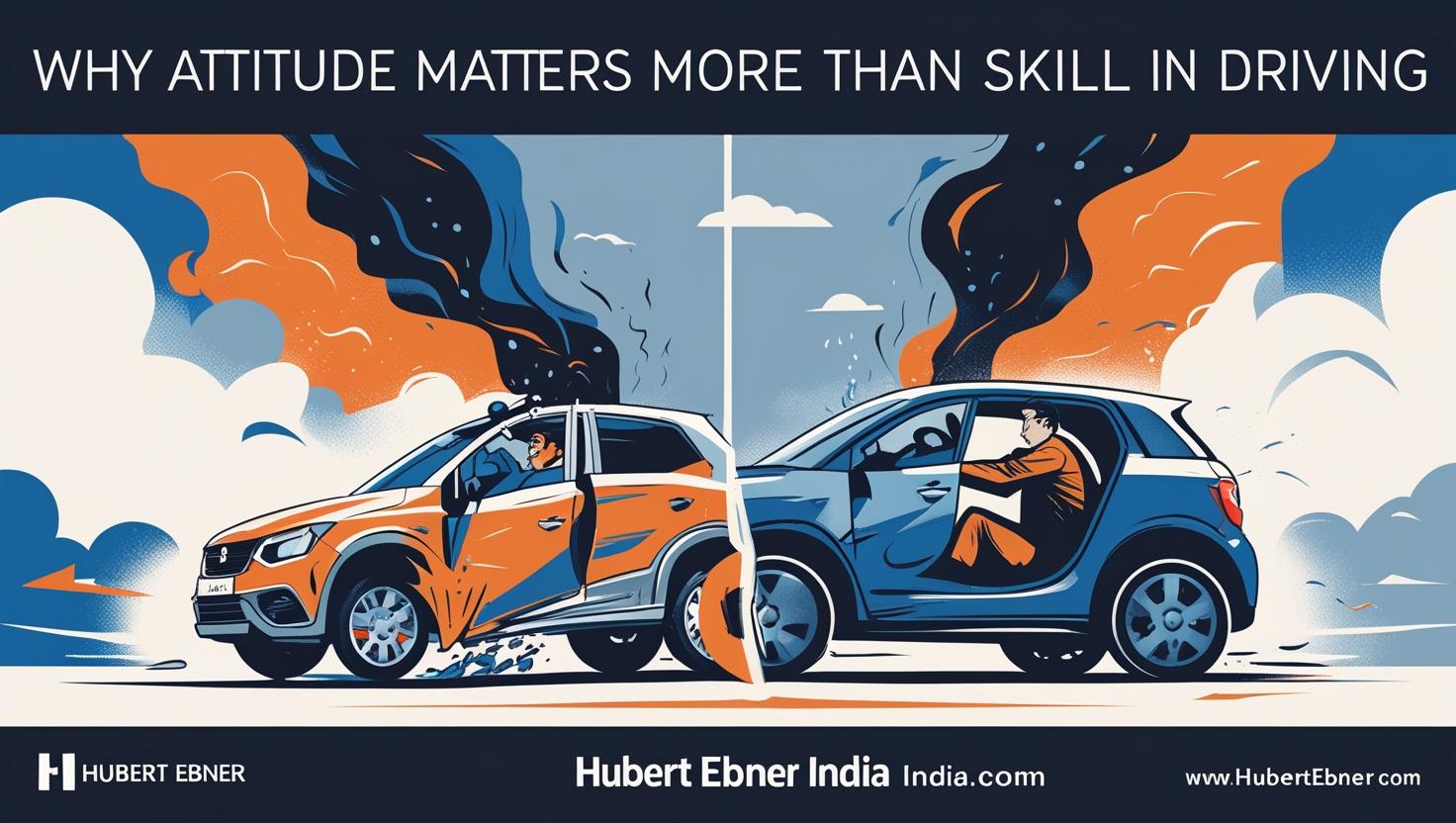Why Attitude Matters More Than Skill in Driving
Introduction
When we think of good drivers, we often picture technical skill—smooth gear shifts, precise braking, perfect lane discipline. While these abilities are essential, research and on-road experience show that attitude is what ultimately determines safety, responsibility, and professionalism behind the wheel.
Skill vs. Attitude: What’s the Difference?
- Skill is what you can do (e.g., vehicle control, situational awareness).
- Attitude is how you choose to apply those skills (e.g., patience, respect, caution).
Even the most highly trained driver becomes a hazard if they are:
- Aggressive
- Impatient
- Overconfident
- Distracted
How Attitude Shapes Driving Outcomes
✅ 1. Risk Perception
Drivers with the right mindset consistently assess risks. They avoid unnecessary overtaking, anticipate hazards, and keep safe following distances.
✅ 2. Emotional Control
Frustration is inevitable in traffic. Drivers with a calm attitude handle stress without reacting impulsively or taking dangerous chances.
✅ 3. Courtesy and Cooperation
Roads are shared spaces. Respect for other road users reduces conflict, congestion, and accidents.
✅ 4. Compliance with Rules
An attitude of responsibility ensures adherence to traffic laws—even when nobody is watching.
✅ 5. Willingness to Learn
Safe drivers never stop improving. They are open to feedback and committed to self-correction.
Examples from Indian Roads
India’s complex traffic ecosystem—diverse vehicles, unpredictable pedestrians, varied infrastructure—magnifies the importance of attitude:
- Skilled drivers in metro cities still cause accidents due to impatience.
- Rural roads test a driver’s tolerance and adaptability.
- Professional fleet drivers must balance delivery pressure with safety discipline.
How Hubert Ebner India Promotes Positive Driving Attitude
Our training goes beyond technical instruction:
🌿 Behavioural Modules – Workshops on emotional intelligence, conflict management, and stress reduction.
🔍 Self-Assessment Tools – Drivers identify their risk tendencies and attitude gaps.
👥 Role-Play Scenarios – Real-world situations to practice calm and respectful responses.
🎯 Ongoing Mentoring – Reinforcing the right mindset through coaching and refresher programs.
Conclusion
Skill may get you moving, but attitude keeps you safe.
Whether you are a corporate fleet driver, a professional chauffeur, or a private vehicle owner, remember:
A good driver isn’t defined by what they can do, but by what they choose to do behind the wheel.
Call to Action
Ready to cultivate safer driving habits?
Contact Hubert Ebner India to learn how our Attitude-Focused Driver Training Programs can empower your drivers to make Indian roads safer for everyone.




